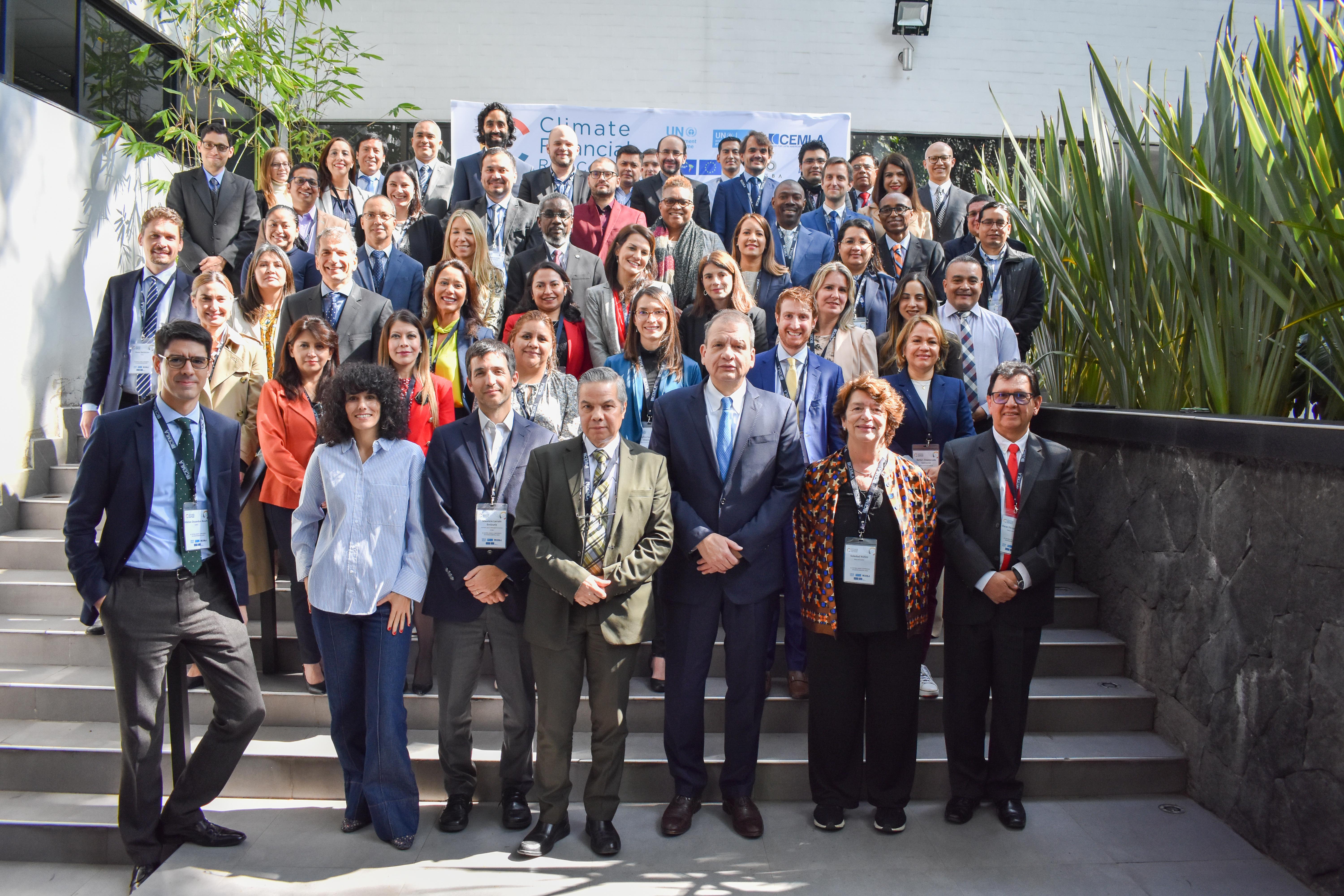

Disponible en
Español
![]()
III Central Banks Conference on Environmental Risks
December 1 - 2, 2022
Hybrid event
CEMLA Mexico City, Mexico
The conference was held in a hybrid format on December 1-2, 2022, in Mexico City. It was attended by 57 in-person and 99 virtual representatives from 58 institutions and associates of CEMLA, representing 24 Latin American and Caribbean countries, the United States and Canada, 11 European countries, and 1 Asian country. The conference agenda included sessions imparted by 31 expositors from 22 institutions: 10 central banks, 6 international organizations, 3 supervisory authorities, and 3 universities and research centers.
During the conference, the Climate Financial Risk Center was officially launched. The center aims to promote open discussions, build capacity, and share knowledge and best practices to advance responses to financial risks stemming from climate change. The agenda included expositors such as Thomas Allen (Bank of France and NGFS), Irene Heemskerk (ECB), Elmar Kriegler (PIK), Mauricio Larraín (Financial Market Commission of Chile), Róger Madrigal López (Central Bank of Costa Rica), Fabrizio López-Gallo Dey (Bank of Mexico), Soledad Núñez (Bank of Spain), and Irene Monasterolo (EDHEC), among others. Particularly, the conference had four discussion panels in which expositors discussed the following topics:
- A global exploration of monitoring climate-related financial risks.
- Understanding physical risk models and data. Discussants also shared insights on their experiences assessing physical risks.
- Sustainable Finance Taxonomies. A framework to facilitate net-zero and climate-resilient investments.
- The role of central banks and financial supervisors in implementing the Paris Agreement and their support in transitioning to a net-zero economy. Moreover, panelists discussed how to integrate climate considerations into financial decision-making processes.
Finally, the conference had three applied sessions where the attendees broke out into smaller groups to identify transition and physical risks and to develop action plans to manage climate risks in the financial system.

